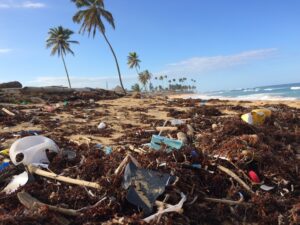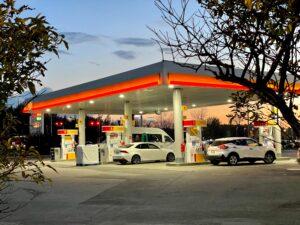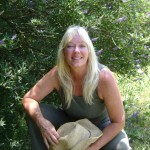
Secure your health by keeping your environment clean.
Environmental toxins affect your health. Cleaning your body of toxins is no different from cleaning toxic spills in the environment. As an Environmental Nutritionist (that’s a new term – LOL), I can show you how to protect your health by cleaning your environment.
I am following the Maui fires, as I am sure you are doing too, but I am watching the clean-up from a HAZMAT Engineer’s point of view. I’ve cleaned up many toxic spills.
Toxins in the environment can penetrate into your body, and cleaning your body (detoxing) is no different than cleaning toxins in the environment.
Most people are not trained in the remediation protocols that take place when there is an environmental spill, like the train derailment in Ohio in 2023, or after a natural disaster, like a wildfire.
There’s more to this than you know.
What I Know About Maui
Mainstream media isn’t reliable these days to tell us the truth, so much of what we hear coming out of Maui isn’t all true. Everyday, I pick through multiple social media sites and various news streams to piece together an accurate story – you have to dig on your own these days to get to the truth like we are doing with COVID.
This is what I’ve found so far:
- the source of the fire appears to be involved with the power lines;
- accountability on how this disaster has been handled is definitely being questioned;
- many city officers and city engineers were not properly trained in HAZMAT Responses and were not competently organized to activate the Emergency System and Emergency Protocols (we also saw this in Ohio after the toxic train spill);
- 80 mph tropical winds blew the fire out of control and rapidly.
It appears that now, the HAZMAT engineers appear to be following better protocols, such as explaining to the people why they are not allowing the public into the affected zones.
A HAZMAT Rundown

Natural disasters destroy gas stations, releasing toxins.
When any toxic spill occurs, the site area is closed off ASAP to prevent more toxic exposure. Environmental engineers determine how far the toxins may have spread, and as in Maui, there is a toxic no-go area.
If people are allowed within this defined parameter, they are susceptible to being exposed to toxins and harm. Until all exposure potentials are identified, public access is denied.
Why?
Here are two examples;
- the fires destroyed gas stations, so gas can be seeping into the ground and into the public water supply;
- this gas can be combustible, but undoubtably toxic;
- the public sewer system and private septic tanks may have been impacted, so exposure to human waste can cause illness;
- toxic chemicals in homes, such as pesticides, may have been released within the environment, and exposure to these chemicals can be toxic.
Hang on before you pass judgment on why survival supplies and other aide are being rerouted within this exposure area in Maui. They ARE being distributed by the HAZMAT engineers, firefighters, police officers, and city officials.
I hope this helps you understand the complexity of addressing a disaster like this one. Understanding helps us better assist those in need to stay healthy.
_______________
INFORMATION ON THIS WEB SITE IS PROVIDED FOR INFORMATIONAL AND EDUCATIONAL PURPOSES ONLY. THE INFORMATION IS A RESULT OF YEARS OF PRACTICE EXPERIENCE BY THE AUTHOR.
